How Palo Alto will manage the tension between development and quality of life is a key issue for a dozen candidates running for city council this Tuesday.
Candidates are grappling with how the city can best plan zoning for commercial buildings and high-density residential construction, as well as keeping up with increasing traffic and parking needs while still maintaining a small-town feel with a strong educational system. Those are just a few big issues for the 12 people looking to fill five open seats on the council.
Peninsula Press recently interviewed 11 of the candidates (Wayne Douglass did not respond to requests for interviews) to get a better sense of each candidate’s views.
Views from the candidates:
(Click names to expand each profile.)
[accordion]
[item title=”Wayne Douglass”]
Douglass did not respond to requests for interviews.
[/item]
[item title=”Tom DuBois”]
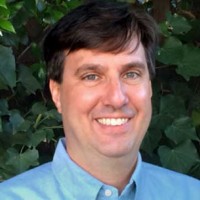
By Brooke Mandujano
Tom DuBois is not a career politician. He is a businessman and consultant and thinks of running for office as public service.
“I have no interest in higher public office,” DuBois says on his campaign website. “My goal is to serve locally by putting the residents first.”
DuBois is a principal of TDS Consulting — a company that assists the business development for digital entertainment companies. But in local politics, he is all about neighborhoods. DuBois has lived in Palo Alto since 1995 with his wife and two children.
Last fall he supported the referendum against Measure D, a controversial plan for a community-zoning project that would have allowed construction of a 60-unit apartment building for low-income seniors, as well as 12 market-rate single-family homes on 2.5 acres. He was involved with Palo Alto for Sensible Zoning, which fought against the measure.
Dubois has other experience in local land issues, he said. He worked on the 2014-2022 Housing Element – which helped lay out Santa Clara County’s housing policies for the next eight years).
He also said supporting the needs of the schools is an important part of his campaign because those needs are really part of the community as a whole.
Part of what he supports is the creation of a new school where Cubberley Community Center stands. The 35 acres there has enough room for both a school and a center. The city currently leases 27 of the acres from the school district, an arrangement that dates to the late 1980s when the city was trying to protect unused school sites from being sold, according to news reports.
The school building idea has been around for years, DuBois said. The city “needs a champion” to make it happen, he said, noting that many schools now are so full that they are using portable classrooms.
“This election’s really a question of what Palo Alto will look like in the next 50 years,” DuBois said. “Let’s keep it beautiful and neighborly.”
[/item]
[item title=”Eric Filseth”]
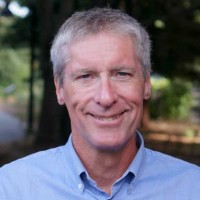
By Katie Kramon
Eric Filseth has been a resident of Palo Alto’s Downtown North Neighborhood for many years, and watched the city change: traffic and parking worsened and at one point he witnessed a car collide with a cyclist in front of his own house.
That was a turning point for him in the decision to get more involved in the push for the city to do a better job on parking and traffic.
It became clear, Filseth said, that running for city council would be the best way to get the city moving in a on important issues like development reform.
Filseth began his career in the private sector — working as an engineer, manager, director, vice president, and CEO of Ciranova — a private software company. It was sold in a private sale to Synopsys Inc. in 2012, which, according to its website: “provides products and services that accelerate innovation in the global electronics market.” The size and finances of the sale were not disclosed, according to Filseth.
After the sale, he took some time off work, and got involved in community activism, he said. The theme in his work with the city so far, he said, has been preventing city development practices with negative impacts on residents.
He began as a neighborhood-parking activist with a group that modeled commercial parking intrusion into neighborhoods. The group lobbied the City of Palo Alto for a parking permit program, reform to development that causes spillover parking, and management to reduce parking demand. He went on to become a member of Palo Altans for Sensible Zoning (PASZ) — an advocacy organization working with land use, parking, and transportation in Palo Alto. The organization pushed to overturn the planned community rezoning of the Maybell Avenue site in Palo Alto, which would have created high-density housing for seniors on 2.5 acres in a residential neighborhood.
If elected, Filseth hopes to “reform the way we do development in town, stop granting exceptions to zoning codes, and prioritize neighborhoods,” he said.
He would like to see the city decide on a more local level how much housing is built in each year, decisions that historically have been set by the Association of Bay Area Governments, he said.
“We need to decide ourselves instead of taking it from a regional authority — we have finite resources,” he said.
Filseth cites his background as an asset for the city council position. “I am experienced managing organizations and known for taking a complex situation and figuring out what is important,” he said.
[/item]
[item title=”John Fredrich”]
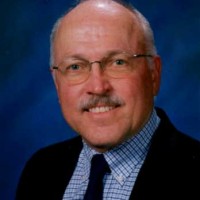
They say the third time’s the charm. Palo Alto City Council candidate John Fredrich hopes in this case the fifth time brings some luck.
Fredrich, 68, has made four prior bids for city council. The last time Fredrich ran for council was in 2003, just over a decade ago. This time around, Fredrich is running to “redefine the parameters of the discussion as to where popular government is going.”
Development is a key issue for Fredrich. But he’s stopped short of joining the residents’ group Palo Altans for Sensible Zoning (PASZ). He has gone on the record in the Palo Alto Weekly as opposing “upzoning” residential sites (classifying property as having higher usage than it was considered to have before). But he also has expressed concern about efforts to implement more measured zoning regulations.
“I have challenged PASZ to come up with an operational definition of ‘sensible’ and just where, when and how do they plan to build affordable housing,” he said in an interview.
Fredrich, originally from Milwaukee, Wisconsin, left the Midwest at the age of 19 to pursue an undergraduate degree in Political Science from Stanford University. He earned that degree in 1968 and earned a master’s degree in Education in 1979.
Fredrich worked at the Palo Alto Unified School District (PAUSD) from 1986 until his retirement in 2010, spending two decades teaching political theory and American politics at Gunn High School.
Fredrich urges all voters to take an interest in the coming election.
“The root problem of democracy is poor participation,” Fredrich said. “Only half will probably vote and many of those are critically under-informed. It is especially true that many younger citizens are disengaged.”
For him, he is running again because he believes the process needs improvement. On his website, he cites three key areas: transparency, following development rules and better financial accountability.
“There seems to be little inclination or effort for the officials to explain themselves to the public,” he wrote on his site. “Whether that is due to incompetence or arrogance, it ill serves us to allow it to continue.”
[/item]
[item title=”Karen Holman”]
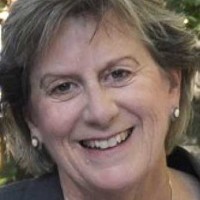
By Margie M. Saunders
Karen Holman, a Palo Alto City Council member since 2009, believes that Palo Alto is a beautiful place being harmed by over-development.
Holman has held a range of leadership positions since her election to city council in 2009. She has worked on and led several efforts on the council, including efforts in support of public arts, transportation issues and zero waste initiatives.
Holman said she wants to close the growing gap between the council’s decisions and public interests. Holman advocates open public records, public engagement, and transparency.
When asked to choose one citywide change to work towards, Holman said: “Right now we need to pay particular attention to the effects of development on the community… That all requires data and conscientious analysis, good planning perspectives, and listening to the community.”
Her extensive planning background – along with her dedication and consistency — is one of her biggest strengths, Holman said.
Holman’s career in the graphic design world also has helped her in her work on the council, she said. Since her move to Palo Alto in 1975, she has held various positions, including manager at Lena Chow Advertising and owner of Holman Graphics. Her professional experiences as an employee, manager, and small business owner give her perspectives to see conflict from a variety of viewpoints, both creative and practical, Holman said. And her knowledge of design has led to an interest in architecture, which helps her recommend and comment on city projects, she added.
But her upbringing also has influenced her beliefs. Growing up in the small town of Carthage, Missouri, she loved to explore nature. This influenced her plan to advocate only for “reasonable development,” and to continue protecting Palo Alto’s environment, she said.
[/item]
[item title=”A.C. Johnston”]
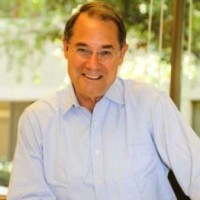
By Maya Humes
Like many other Palo Alto residents, city council candidate A.C. Johnston has taken note of the tension in his city between community members who support the development of homes and offices and those who resist it.
Johnston, 68, supports the growth and change that Palo Alto is experiencing, he said. But his goal is to ensure that Palo Alto residents are not negatively impacted.
“For my entire legal career, I have helped people resolve very contentious, very complicated disputes,” Johnston said. He has been a managing partner at the firm Morrison and Foerster since 1981, and his practice focuses primarily on issues involving intellectual property.
“I think being able to help people see common ground and where their interests align is helpful at a time when there is disagreement in the city,” he added.
Johnston moved to Palo Alto in 1990 to found the Palo Alto office of the law firm. During his career, he has been stationed in Tokyo, London, and Washington D.C. but he considers Palo Alto home.
Palo Alto is where he built a life with his wife of 45 years, Kathryn Johnston. It is also where he raised his only daughter Eliza, 34, now a city planner and environmental economist in Massachusetts.
Johnston was motivated to run for city council because he believes that the city can better contend with the constant development that is occurring. He sees a clear need for additional low-cost and moderately priced housing particularly for senior citizens and younger people just moving to Palo Alto.
Though Johnston lacks elected government experience, many local officials have still chosen to endorse him and all that he stands for. And Johnston still believes that he can help identify areas for improvement and find solutions.
“We also have a huge problem in the city with traffic and parking,” Johnston said. “Additional moderately priced housing would help with that as well because people could walk and bike to work rather than drive.”
And the city can work to take advantage of new technologies that will help ease the parking crunch, he said. “It would save people a lot of time if they had information regarding where they could look for empty spots,” he said.
[/item]
[item title=”Lydia Kou”]
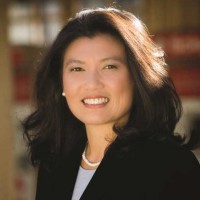
By Meredith Kalinowski
As a Palo Alto resident of 17 years, Lydia Kou believes citizens’ needs are being overlooked by the Palo Alto City Council in favor of profitable projects.
Kou, a residential Realtor, said she is able to hear and understand what local residents are searching for in Palo Alto homes. She believes she has a unique perspective on the needs of the local people that she wishes to represent in city council.
Kou does not anticipate any conflict of interest regarding her occupation and her potential position on city council. “I have not delved into deals or transactions with developers because I focus on reselling property, not developing,” Kou said.
Kou said she demonstrated her commitment to representing the voters’ interests when she opposed the Maybell Project known as Measure D, a controversial effort to build a 60-unit apartment complex for senior citizens. She said the complex was too dense for the area. After talking to residents, she found there was strong opposition to the bill and began a petition to get it on the ballot for 2013. The petition was approved and the project was voted down.
Going forward, Kou plans to continue her volunteer work with Emergency Preparedness. She hopes to use this program to foster a sense of community within Palo Alto by facilitating neighbor interactions.
Kou also said she hopes to bring both her experience of neighborhood life in Palo Alto and her own diverse history to the council if elected, saying she wants the “melting pot” of Palo Alto well represented. She is married with two grown daughters and a Maltese named Socrates, Lydia Kou is settled in her one-story home in the Barron Park neighborhood. She was born in Hong Kong, raised in Sudan, and attended both high school and college in Guam, graduating from the University of Guam with a degree in accounting.
“The council charter says it represents the residents of Palo Alto, and I want to make sure we change the culture [of the city council] so it is aligned with the vision of the people,” Kou said.
[/item]
[item title=”Seelam Reddy”]
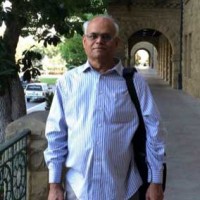
By Alyssa Wright
Seelam Reddy is looking to improve Palo Alto with innovative transportation solutions, accessible services for citizens, and an open, transparent method of governance.
A Palo Alto resident for a year and a half, Reddy is prepared to “buckle down and take action” in the council, he said. He is a newer member of the Palo Alto community, he acknowledged, but believes that he has the skills and drive to make a positive change in city hall. One of his goals for the city includes forming a better partnership with Stanford University.
“We need to form a new mentality towards our relationship with Stanford. Both areas need to work together and improve relations,” Reddy said. He also hopes to maintain transparency so that the public remains informed.
Reddy, a native of Hyderabad, India and a retired engineer and consultant, said that he has a hard work ethic and passion for social improvement. He learned how to best support a community like Palo Alto by growing up and watching his father, who was a mayor of a small community in India, Reddy said.
John Spradling, a friend and former coworker at Hughes Aircraft Company, described Reddy as a considerate man with good moral standing. Spradling said he believes in Reddy’s ability to speak for the city’s residents even if it means contradicting a popular view.
Reddy’s other goals for the City Council include working together to better handle traffic situations due to Stanford football games; much of the traffic builds off campus and into the city of Palo Alto, he said. And Reddy said that he wants to present an alternative to Palo Alto’s expensive grocers and support having an accessible and affordable grocery store in Palo Alto.
He added that he understands the importance “in innovation and actually getting things done.”
[/item]
[item title=”Greg Scharff”]
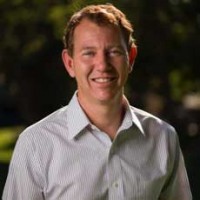
By Alejandra Reynoso
Incumbent Greg Scharff looks ahead to this city council election with enthusiasm, and back on last November’s Measure D – on the Maybell Avenue project — with reflection, and says he would have done it differently.
Scharff, a local attorney, plans to address community concerns with more attention to resident sentiment, he said. And for him, that means more attention to parking and traffic congestion, and how development happens.
A Palo Alto resident since 1988, Scharff became a city council member in 2009, was vice-mayor in 2012, and then mayor in 2013. His focus has been on fiscal responsibility, environmental sustainability practices, and the preservation of quality of life.
Scharff states on his webpage that his children have benefitted “tremendously from the opportunity to grow up in this wonderful community.”
During his time as mayor, he was involved with the banning of smoking in city parks, worked to prevent the conversion of retail spaces into office space and promoted the development of retail establishments on ground floors of commercial buildings.
Scharff’s most provocative case for quality of life reform has been his stance on planned community (PC) zoning, which allows developers to exceed regulations on zoning in exchange for benefits to the public.
Scharff was active in the council’s recent establishment of a moratorium on planned community zoning after become increasingly disenchanted with the process.
He drew criticism from residents when he supported the development of the Lytton 101 project, a four-story planned community zoning development in downtown.
Other residents concerned with increased traffic congestion and lack of parking, and unhappy with what was seen as a false benefit — a bank on the first floor — criticized Scharff for getting cozy with developers.
Scharff has responded that his support of the project was an attempt to secure real benefits for residents and address the community’s major concern –parking. He added that he worked hard to ensure developers aggregated parking to the project, and secured contributions to fund the building of a new parking garage downtown.
After last November’s landslide vote to prevent a planned community zoning development that would convert an orchard on Maybell Avenue into affordable housing for low-income seniors, Scharff said he lost faith in the planned community zoning process.
“When residents rejected the Maybell project, they sent a message loud and clear to me that a significant number of my constituents no longer trust the PC zoning process or its ability to produce any meaningful public benefits,” he said.
He still believes in the development of affordable housing but said he has come to the conclusion that the planned community zoning process is broken.
Scharff said he would continue to focus his attention on improving parking and traffic in Palo Alto, adding that he expects the city to have a Residential Preferential Parking (RPP) program in place by January.
He also will continue efforts to monitor costs. In 2011, Scharff was one of the loudest voices in repealing binding arbitration for Palo Alto police and firefighters.
The move put labor negotiations with PAPD and PAFD into the hands of the city council by removing third party arbitration, which the council claimed historically favored labor unions. This allowed the city to more closely track rising labor and pension costs.
And he wants to see continued efforts for a more sustainable city. He has championed the future of electric vehicles by advocating for electric charging stations at new residential and commercial developments. He also noted that during his time as mayor, Palo Alto was 100 percent carbon neutral.
“We have almost all of the pieces in place to make those needed investments to ensure that Palo Alto remains a safe, beautiful and vibrant place to live, work and raise a family,” he said. “I would continue to focus on ensuring that Palo Alto is financially sound, uses the public’s money wisely, and continues to focus on efficiency, and innovation to ensure a fiscally healthy future.”
[/item]
[item title=”Nancy Shepherd”]
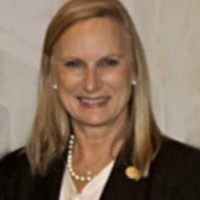
By Spenser Linney
After spending 30 years in Palo Alto as a resident, volunteer, and community leader, Palo Alto Mayor Nancy Shepherd hopes for another opportunity to continue to better the city and community that has shaped her even more than she has shaped it.
Shepherd has pledged to ensure that “Palo Alto remains a great place to live, raise a family, and retire for years to come.” But she also said she wants to provide relief to Palo Alto’s infrastructure and parking system by implementing parking permits and encouraging residents to carpool.
Shepherd was first elected to the city council in 2010 and has worked on a variety of projects, including representing Palo Alto in the California’s High Speed Rail Initiative planning and successfully preventing loud trains from moving through the city, she said. She also worked on Palo Alto’s Park and Ride system, as well as representing youth interests in the community through an initiative she named “Youth Well Being Collaborative.”
Now, she wants to improve land use and infrastructure in Palo Alto as well as make sure the community retains its family-friendly focus, Shepherd said.
If elected, her new term will begin in January. She will continue to serve her one-year term as mayor for the remainder of 2014.
Born in San Francisco in 1954, Shepherd grew up in Marin and attended San Francisco State University for both her undergraduate degree and her master’s degree in international relations before moving to Palo Alto in 1984.
She describes herself as a community activist who volunteered for both the Palo Alto and East Palo Alto School districts and found herself troubled by the “anemic nature of educational fundraising.” She was a co-founder of a program to raise education dollars for the entire school district instead of school by school, she said. That project became what is now the Partners in Education Foundation.
“My daughter teaches at Palo Alto High School, and my granddaughter is a 6th grader at Jordan (Middle School),” she said. “We’re pretty invested in the community at a lot of levels.”
[/item]
[item title=”Mark Bennett Weiss”]

By Erin Ashby
Mark Bennett Weiss, 50, would tell any citizen of Palo Alto “to lean in, stand up, and speak out” about the issues and goals they hope to accomplish in the community.
After all, that is exactly how he got involved in the council campaign his first time around.
Weiss ran in both the 2009 and 2012 Palo Alto City Council elections in hopes of impacting local policy. In 2009, Weiss added his name to the ballot after Sid Espinosa, the former Palo Alto mayor, wrote a column in the Palo Alto Weekly that encouraged the public to engage in city governance.
Weiss finished 13th out of 14 candidates and describes his first campaign as trial period in which he got to experience the political process. He received a total of 732 votes. In his 2012 campaign, Weiss finished 6th out of a six-candidate race, but received over 5,700 votes.
“I’ve made considerable progress in [these past] five years,” Weiss said.
A Palo Alto resident since he was just three years old, Weiss has seen the community develop right in front of his eyes and said that real estate and commercial development is his biggest concern for the upcoming election.
“Palo Alto made me who I am,” Weiss said. “There is an obsession with making money on real estate, and we are basically outmatched.”
Weiss believes that the city is at the mercy of a select handful of wealthy developers with their own agenda, and citizens need to push back.
Weiss is the founder of Earthwise Productions, his own spin-off of Bay Area Action. He has managed and produced over 200 concerts, many of which were environmental benefits, in addition to managing a core set of artists.
“Putting on concerts in Palo Alto is very much what we need,” Weiss said, adding that being able to enjoy an evening of good music with friendly neighbors is an example of Palo Alto at its best.
[/item]
[item title=”Cory Wolbach”]
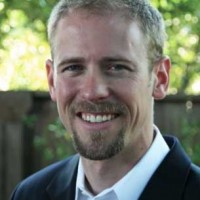
By Alex Blandino
Palo Alto native Cory Wolbach is troubled by some of the trends he has been noticing around the town he has always called home. The youngest of seven siblings, and at 33, the youngest of the 12 candidates on this year’s city council ballot, he sees room for improvement and opportunity.
Wolbach said he is focused on ensuring there are housing options for people of all ages and all income levels in Palo Alto and on improving the city’s public transit system.
A resident of the Palo Verde neighborhood, Wolbach is taking a leave from his position as a field representative for State Sen. Jerry Hill, D-San Mateo, to pursue his grassroots campaign.
He said he wants to use his political background to help solve the housing problem facing young adults trying to make their way in Palo Alto’s growing workforce. Finding housing is difficult and new developments should be focused on addressing that need, he told the Palo Alto Daily in an interview.
He has served as a board member on the Peninsula Democratic Coalition among other Democratic Party work. And his work within the political system, both on the state and local level, has taught him how to make change happen, he said. His relationships with people in Palo Alto, along with regional bodies in neighboring cities will be useful in helping him be an effective member of the council, Wolbach said.
Among the changes Wolbach hopes to tackle if elected is the way the city’s shuttle system work. He wants to revamp the system by increasing accessibility and improving the efficiency of the routes, he said.
Part of his inspiration for improving the transit system comes from his 84-year-old father, Wolbach said.
“My Dad no longer drives and it’s hard for him to get around,” he said. “A lot of Palo Altans in my parents’ generation are feeling trapped in their homes with nowhere else to go unless they leave the city entirely.”
Wolbach has received numerous endorsements including from retired Superior Court Judge LaDoris Cordell, who also is a former council member. Said Cordell: “Wolbach has a strong sense of core values and a sense of fairness that reflect the conscience of the community.”
[/item]
[/accordion]
Candidates biographies at-a-glance:
(Click on each candidate to learn more.)
[ubergrid id=1369]
